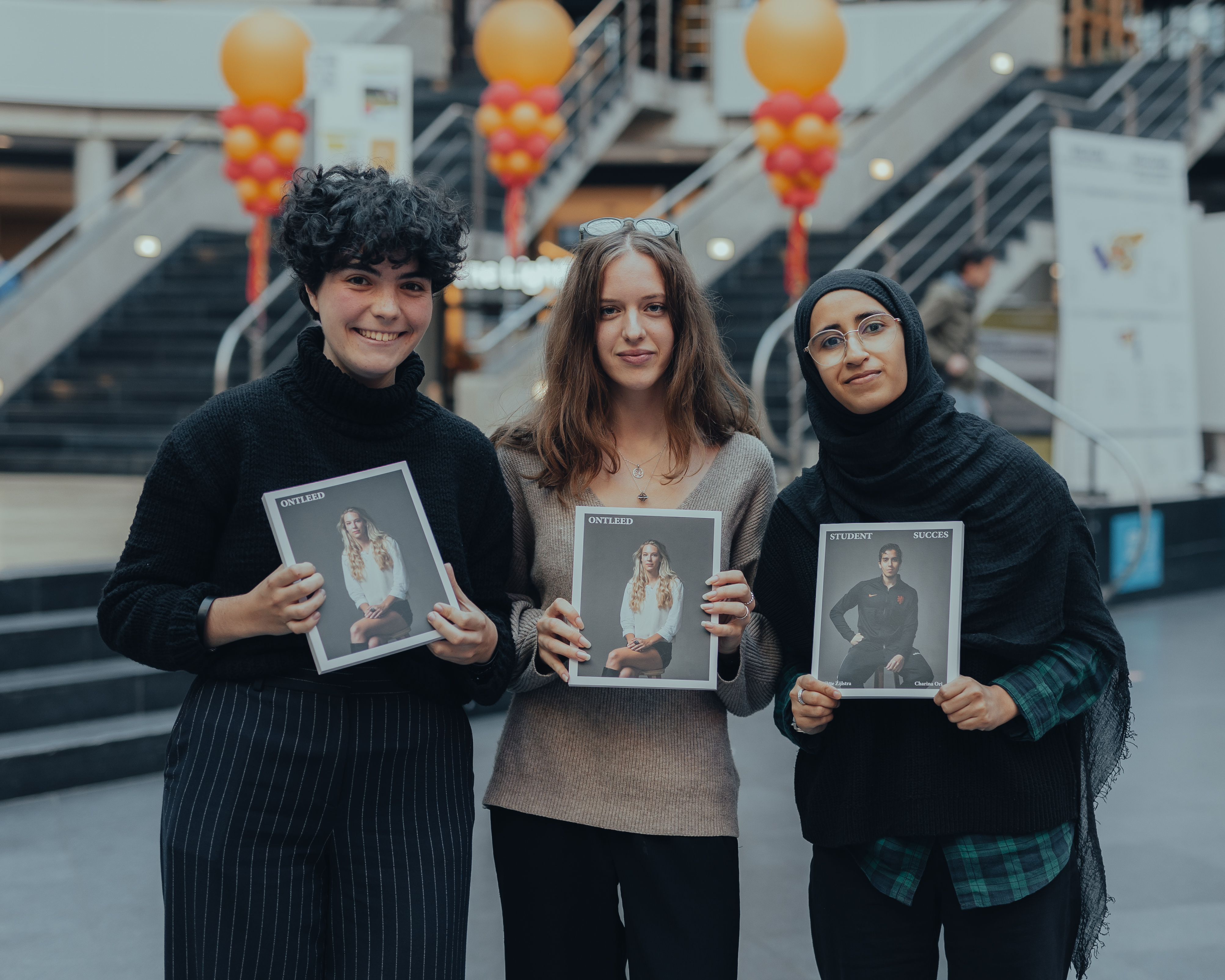Student success: what exactly does it mean
Student success is mentioned for the first time in the Higher Education Strategic Agenda 2019. But what exactly does it mean? Is this a replacement for student success or a new direction?
Centre of Expertise Global and Inclusive Learning

Student success is mentioned for the first time in the Higher Education Strategic Agenda 2019. But what exactly does it mean? Is this a replacement for student success or a new direction?
All decades have been spent looking for ways to improve student success. But breakthroughs have failed to materialise. Underlying reasons are a linear, fragmented and unsustainable approach to the issue, the unruly education system and persistent beliefs, norms and values about good teaching and about ‘what makes good students’ that get in the way of change. Is the course of student success the solution? The Centre of Expertise Global & Inclusive Learning's research project ‘Student Success’ explores the concepts of study success and student success, how they relate to each other and how we can overcome dilemmas within education.
About the research
The research programme works along three lines:
- Exploring/researching: exploring the concepts of study success and student success, how they relate to each other and what dilemmas arise in improving study success and student success.
- Experimentation: if we want to make the move within programmes and faculties in study and student success, how do we do it? How do we navigate between study and student success? Via the labs, we address concrete questions from education, such as making student guidance more meaningful in Skin Therapy and making student success visible within the new M&O track.
- Learning to innovate/change: study success and student success are complex concepts in which many factors play a role. How do we design change processes to take into account a multitude of factors and create impact? What do we learn from the labs and can we as an organisation become learners in this area? Through the SDB (Senior Teacher Competence) and HINT (Haags InnovatieNeTwerk), among others, we are investigating this.
The book: Student Success Dissected (2022)
In 2021, the research started with interviews with experts from the higher education sector involved in improving study and student success. Then, together with seven teacher-trainees from the trainee programme, research was launched into the meaning of and experiences with study and student success of lecturers, students, student supervisors and managers/directors of The Hague University of Applied Sciences. This led to the book Student Success Dissected by Wâtte Zijlstra and Charina Ori, which was presented in September 2022.
Conclusions
The book Student Success Dissected (2022) by Wâtte Zijlstra and Charina Ori expressed the following conclusions. From these conclusions, follow-up research will be designed (experimenting through labs and learning to innovate/change).
- Study success and student success are two different concepts and at the same time connected. Student success is part of student success for many students and teachers.
- Student success is a personal concept and has to do with personal aspirations and development. There is no fixed definition for student success.
- Student success arises in the relationship with fellow students, teachers, researchers, people in the field and in the home situation. It is not an individual concept.
- The ideal of student success is widely shared, but there is a big difference in ideal and reality. The current education system is strongly focused on study success and student success plays a less important role. A full curriculum, regulations and the performance culture caused by KPIs (critical performance indicators) ensure that there is little room for student success.;Schools struggle with this.
- Two extreme learning environments can be identified: based on study success and based on student success. Programmes move between these two extremes.
- Improving study success and student success is difficult because specific resources are lacking (student success is often seen as something fun, something extra, as a hobby), lecturers do a lot on their own and many interventions do not lead to structural/sustainable implementation. Change management is not a general, present expertise.
Follow-up research on student success
Since 2022, insights on study and student success have been shared through workshops and lectures inside and outside the college. The discussions and feedback give depth to the issues and will be incorporated into several articles (2023-2024).
Through labs with programmes, we work with teachers, students and educational advisers to find ways to improve study success and student success. These labs are facilitated by the researcher who monitors the process and shapes it together with the group. In 2021, the Meaningful Student Guidance lab started in Skin Therapy and in 2023, the M&O track monitor lab started looking at the interpretation of student success within this new propaedeutic.
Through the SDB (Senior Docent Begeleiding) and HINT (Haagse InnovatieNeTwerk), the change practices of teachers and managers are studied through observations. Within these teaching/learning communities, teachers and management reflect and examine their own change practice. HINT will start in the autumn of 2023 and will be evaluated from the research line learning to innovate and change in 2024.
Collaborations within The Hague University of Applied Sciences
Which programmes are involved in the research?
- M&O track (Communication, Facility Management, Business Administration and Human Resource Management)
- Skin Therapy
- Teachers/managers of various programmes participating in the SDB and HINT
- Hague Centre for Teaching & Learning (HCTL) and educational advisers (OKC)
External collaborations
ECHO, expertise centre for diversity policy
Funding
- NPO funds
- Hague Innovation Programme (HIP) to set up HINT (Haagse InnovatieNeTwerk)
- Project Impuls Haagse Labs (made book Student Success Dissected possible)
Project duration
January 2021 - December 2024
Project leader/Researcher
Senior researcher: Wâtte Zijlstra ([email protected])
Team
- Inclusion Officer: Charina Ori ([email protected])
- SDB programme coordinator: Froukje Jellema
- Education Advisor: : Janine Haenen ([email protected])